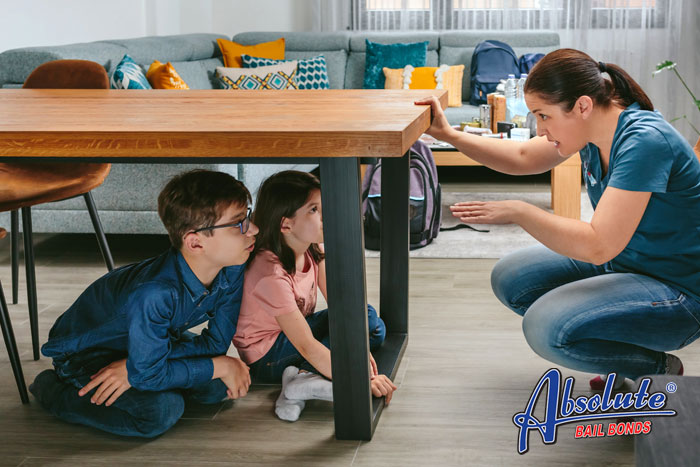
Earthquake Safety Tips
There are many great reasons to live in California. There’s also one huge drawback. In exchange for easy access to beaches and year-round wonderful weather, you always have to be prepared for an earthquake.
The good news is that most of the earthquakes we experiences are really small, little more than slight tremors that give people something to chat about. They seldom do more than cause a few things to fall off shelves. However, every once in a while, there is a massive earthquake.
Since no one really knows when a big earthquake will arrive or how bad the earthquake will be, it’s important that everyone is up to date on current earthquake safety tips.
Create a Safety Plan
Everyone who lives in your home should have a plan about how they will handle things if they’re home during a massive earthquake. Not only does this mean knowing the safest point in your house, but also having a system in place that allows you to connect with loved ones to let them know that you’re safe. Keep some survival supplies, including non-perishables, blankets, and bottled water in the earthquake designation zones.
When You’re Indoors
If you’re inside when a massive earthquake hits get somewhere protected. Ideally, this would be a closet, which has a frame that provides additional protection. If you’re not near a closet, get under a table or desk. The idea is to get some protection from falling debris. Make sure you’re well away from bookcases, windows, and anything heavy that could shift or fall.
Drop low to the ground, preferably on your knees, and stay still until the shaking stops. You should stay indoors for several minutes after the shaking stops. The only exception to staying in place is if you smell gas or smoke. If you smell gas or smoke, get out as quickly as possible while yelling for help.
When You’re Outside
If you’re outside when an earthquake starts, you want to get low to the ground while also moving away from trees, buildings, and power lines. If you’re in a vehicle, stop the car somewhere that there’s little damage of it being hit by a powerline tree, or sliding into a ditch.
Once the earthquake has passed, you need to first take care of yourself and make sure you’re not injured. Once you’re confident you’re in good shape, your next course of action is checking in with your loved ones and helping anyone who was injured during the earthquake.

Driving Drunk on Halloween
We have a tendency of thinking about Halloween as a holiday that is full of good-natured fun. It’s a holiday that allows us to wear crazy costumes, abandon our diets, and really cut loose. The only real risk we usually associate with the holiday is the need to drive carefully during the time frame that trick-or-treaters roam the streets.
What many of us don’t know is that Halloween is a holiday when many drivers overindulge and are legally drunk when they slide behind the wheel. Most of these drunk drivers are leaving Halloween parties.
College students in particular are prone to over drinking on Halloween. One research project revealed that the average college student usually drinks about 6.3 alcoholic beverages at Halloween parties. That’s about 1.4 more drinks than they would normally consume.
And it isn’t just college kids who drink too much at Halloween functions. According to the American Addiction Centers, Halloween is the fourth booziest holiday of the year. Americans consume less alcohol on Halloween than they do on the Fourth of July but more than they drink during Cinco de Mayo.
If you’re going to a Halloween party and plan on drinking alcohol, you still need to be smart. Assume that you’ll drink too much to safely drive home and create a plan. This plan could involve a designated driver, getting an Uber home, or simply staying at the host’s home until you’ve sobered up.
Hawaii patrol officers know how dangerous the streets are on Halloween night. They will be out, and they will be keeping an eagle eye open for any tell-tale signs that you’re driving drunk. It’s even possible that you’ll encounter a sobriety checkpoint on your way home.
If you are arrested and convicted of drunk driving on Halloween, the consequences will have an immediate impact on your life.
If this is your first DUI conviction, you could be sentenced to as much as six months in jail, fined up to $1,000, have your driver’s license suspended for six months, and have a vehicle ignition lock installed on your vehicle for up to a year while your driving privileges are restricted.
The third time you’re convicted of drunk driving in California, you could be sentenced to 120 days through 1 year in jail, pay a fine of $1,800, lose your driver’s license for up to 3 years, plus have an ignition lock installed on your vehicle for as long as two years.
If your drunk driving results in property damage, someone getting hurt, or the death of another person, you will face even more serious charges that could include vehicular manslaughter.
All things considered, finding a different way to get home after you’ve been drinking at a Halloween party is a really good idea.
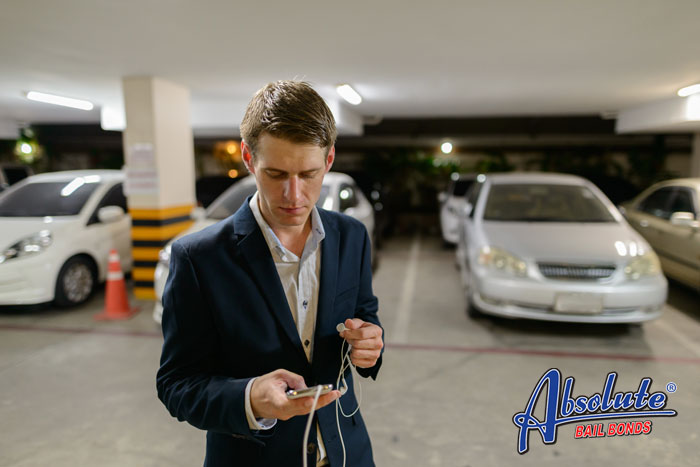
The Truth About Parking Lot Safety
We take parking lots for granted. We treat them like a casual place to leave our car while we run into a nearby building.
We’re usually so focused on either getting to the store/office/school/government building or getting into our vehicle to go home, that we seldom stop and think about how dangerous parking lots really are.
The truth is that every time you use a parking lot, you put your life at risk.
A surprising number of people are injured in parking lot falls every single year. In most cases the reason for the fall is innocent, you tripped on a stick, a pothole, or even your own feet. The problem with parking lot falls is that not only is there the danger that you’ll hit your head on the asphalt when you land and possibly sustain a traumatic brain injury, but while you’re down, there’s a chance a driver won’t notice you on the ground and will run over you.
The best way to avoid a dangerous fall is walking with care, staying well out of the routes the vehicles take through the parking lot, and not walking behind/in front of any running vehicle. If you do fall, yell at the top of your lungs so drivers will know you’re in distress and drive defensively and cautiously.
Drugs and other criminal activity are a huge problem in parking lots. There’s something about the layout of parking lots and the sheltered nature and accessibility of the parking garages attract a huge criminal element. This isn’t something you want to get mixed up in. Avoid groups of people who are simply standing around or who appear to be conducting business. Avoid making eye contact with these people. Once you’re in a safe place, contact the police.
Parking lot abductions are a serious problem, particularly for women and children. So many people are distracted by either plans or their cell phones that they are easy to grab and shove into a car. The best way to avoid being a parking lot abduction victim is to keep your head up, your ears free of any headphones so that you can hear an approaching car or footsteps, don’t walk in shadows, and enter your car as quickly as possible.
If you suspect you’re being stalked through the parking lot, abandon your plans to leave and go to the building and alert an employee to the situation.
The next time you’re in a parking lot, don’t take your safety for granted. Be aware of the potential danger and have a plan to stay safe and healthy.
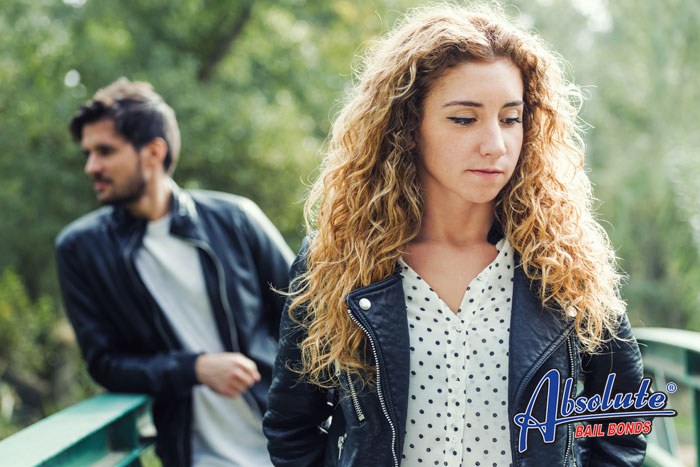
Are you Being Stalked?
Stalking is a major problem in the United States. Every single year there are about 6 million people who find themselves in a position of having to report stalking-related incidents.
While most stalking victims are women, that’s not always the case. Each year men, who often assume that they don’t have to worry about stalkers, find themselves being followed. Some female stalkers have even murdered their victims.
The sooner you recognize the early warning signs of a stalker, the safer you will ultimately be.
When stalking victims look back on their history with their stalker, they usually notice that things started getting weird when they continually ran into the person in various locations. In the beginning, things usually don’t seem strange because it’s someone they know and because sometimes people do share the same space at the same time.
However, if the “causally running into one another” becomes a daily occurrence or the encounters happen in increasingly strange places, it’s time to start considering that a stalking situation could be developing.
Unexpected Gifts
The only thing better than getting a present is getting a present when it’s totally unexpected. The problem with unexpected presents is that they can also be a sign of unwanted attention. If someone is continually giving you things, even seemingly innocent things such as candy bars, it could be that they are developing an unhealthy obsession.
Ignoring Boundaries
Once you started getting unwanted gifts you likely started putting up some boundaries. If a person is ignoring these boundaries and continues to lavish unwanted gifts on you and is constantly entering into your personal space, it’s a sign that they have developed a potentially unhealthy attachment to you.
Property Damage
Property damage is often a tell-tale sign that a person has started to develop a stalking tendency. This is especially true if you’ve done something such as gone out with someone else or rebuffed your stalker’s advances. The property damage is a sign that it’s time to get the police involved.
It’s not uncommon for stalking behavior to escalate until it is ruining both your’s and the stalker’s lives. Ignoring the behavior doesn’t do anyone any favors. As the stalking behavior escalates, it’s important to involve the authorities. Not only will they take action to protect you, reaching this point could be what your stalker needs to realize that they’re engaging in dangerous behavior and that they need to seek professional help.
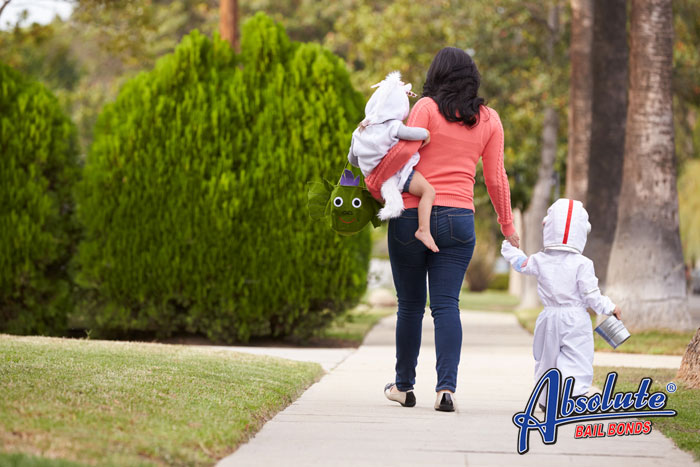
Trick-or-Treat Safety
Finally! Halloween is here. Not only does that mean cooler weather, pumpkin spice coffee, and an excuse to snuggle up with a good book rather than going out, kid will tell you that it’s time for free candy.
While kids love trick-or-treating, parents often have mixed feelings about the popular activity. Yes, it’s great to see how excited your kids get each year. The problem is that each year, parents worry how they will keep their child safe while they go from one house to another.
The good news is that there are things you can do to insure trick-or-treat safety while also allowing your children free rein to enjoy the holiday.
Make sure your children are visible, even if they’re out after dark. This isn’t complicated. Simply arm your child with a flashlight, and incorporate some flashing lights and reflective strips into their costume.
Remind your child about the rules of the road. Kids are so excited about being dressed up and obtaining as much free candy as possible, that they can easily forget things like watching for traffic. Before they head out to trick-or-treat it’s really important to remind them that they have to be respectful of motorist who are driving along the streets.
Trick-or-treat as either a family or friend unit. Instead of sending your child out on their own to trick-or-treat, make this an opportunity to make some excellent family memories and go out with your children. If work or life makes it impossible for you to join in the trick-or-treating fun, arrange for your child to go out with friends or other family members. Your child is far safer in a group than they are by themselves. Make sure a responsible adult will be watching over your children the entire time they are trick-or-treating.
Your children will want to eat their candy right away, but encourage them to wait until you get home. Waiting gives you an opportunity to inspect their candy and make sure it hasn’t been tampered with, plus it means your child isn’t potentially stopping in the middle of intersections in order to snatch a sugary treat.
Covid-19 is still a concern so make sure you keep a bottle of hand sanitizer on you and frequently apply it to your child’s hands. Remind them not to touch their face until they’re home and able to thoroughly wash their hands.
What steps are you taking to keep your child safe while trick-or-treating this holiday season?
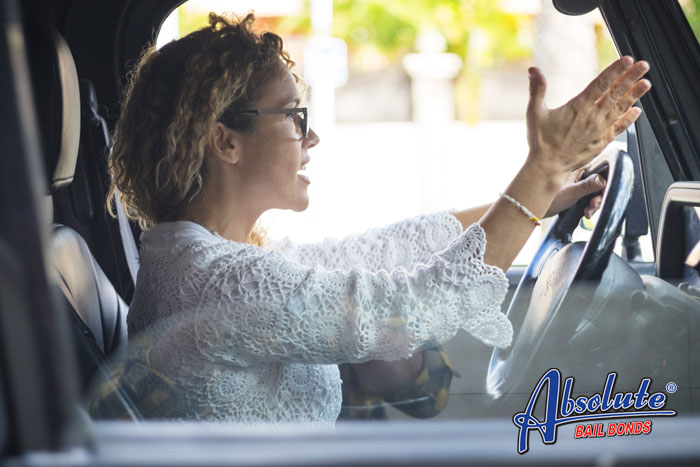
How Serious is Road Rage
The first time the term “road rage” was officially used was during the 80s when a team of broadcasters decided the term perfectly summed up the cause of a highway shooting. Since that broadcast, road rage has become a regular part of our working vocabulary. At the same time, it has become a serious problem for every single driver.
Road rage is a burst of strong, negative emotion that is triggered by some incident that happens while a person is driving. In most cases, we’re able to clench our jaws, hang onto the steering wheel, and wait for the emotional vortex to pass.
The problem is that some of us aren’t able to ride out a burst of road rage. Some of us are can barely think during this period of emotional upheaval and subsequently, make some incredibly poor driving decisions that can put both our lives and the lives of every other person on the road at risk.
Data collected by Carsurance provides an alarming insight into how common road rage is. The site reports that eight out of every ten drivers will experience bouts of road rage while they’re driving. Even more alarming is how the same report indicates that road rage is the main reason behind a majority of car accidents in the United States.
It’s estimated that approximately two-thirds of the fatal accidents that occur in the United States are linked to road rage.
Road rage incidents are quite common. Triggers include crowded driving conditions, slow-moving traffic, frequent stops, and starts.
The driver will likely receive tickets for moving violations which could include reckless driving, speeding, improper passing, etc. If the person has a firearm in their car, and/or uses the firearm during the road rage incident they could face serious legal charges.
Considering the potential consequences of a single road rage outburst, it’s in your best interest to explore techniques that will help you keep your cool while you’re behind the wheel.

The Difference Between a State and Federal Warrant
Most of us know that the police can’t simply walk into our homes and start searching it unless you’ve given them permission to do so, or if they’ve gone through the correct legal channels and acquired a warrant.
The same is true when it comes to arrests. While there are some exceptions, such as drunk driving, you usually can’t be arrested unless the police have an actual arrest warrant.
What you might not know is that there are both state/local arrest warrants and federal arrest warrants.
The biggest difference between a federal and state/local warrant is the law enforcement agency that is involved in your case.
If a federal warrant has been issued for your arrest, it means that you’re a suspect in a federal crime. To obtain a federal warrant, the agency working on the case must present a federal judge with sufficient evidence that you potentially committed the crime and that the crime is indeed a federal matter.
In some situations, trying to determine if a case is federal or state can be complicated. When this happens, a joint task force that consists of both federal agents and state officers is formed. The joint task force not only allows the different agencies to pool talent and resources but also makes it easier to obtain warrants.
How you should behave if there is a warrant for your arrest depends on how you learn about this information.
If you have heard (or suspect) that an arrest warrant has been issued, but the police haven’t actually knocked on your door, don’t even think about trying to run. Bolting will only make the situation worse.
The first thing you should do is contact a lawyer. Tell them what you know and ask for their advice. They will likely encourage you to turn yourself in. By contacting a lawyer before you’re formally arrested, you can keep them by your side throughout the entire process and make sure that none of your civil rights are violated.
Since the police aren’t currently hauling you to the police station, take a little time to get your personal affairs in order. This is a good time to contact a bail bonds agency and alert them that you’ll likely need a bail bond. If you have children or pets, take steps to make sure they’re properly cared for if you have to remain in jail for a few days. Lock up your home, and make your way to the police station.
If the police show up at your home with an arrest warrant, read the warrant and make sure all the information is accurate. If the information is accurate, calmly and quietly go with the officers. Don’t even think about trying to resist the arrest. Don’t answer any questions, take a plea deal, or discuss the case with anyone until your lawyer has arrived.


